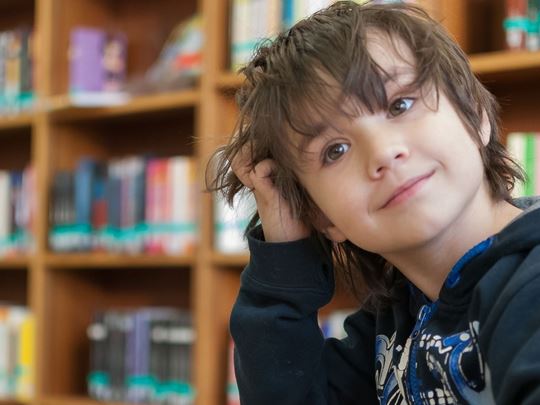Mental health disorders in children
It’s not just adults that struggle with their mental health. Children and young people also feel the strain and stresses of life, especially if they’ve come from difficult backgrounds like many of the youth we see in care. When a child develops a mental health disorder, it’s usually a direct response to their immediate situation, which disrupts or delays their behavioural, emotional and social development.
Why is good mental health so important for children?
Having a healthy mind gives children the ability to cope with change and build confidence in themselves and the world around them. These are important building blocks to growing into a well-rounded young adult that’s able to make good decisions and take control of their life. Looking after a child’s physical health is a good starting point, with a balanced diet and regular exercise, but it goes deeper than that. A child that has freedom to play, is part of a loving family, goes to a good school and is listened to are more likely to feel a sense of belonging, which goes a long way in terms of positive mental health. Unfortunately, as we see with our foster children, not everybody gets to experience such a bright and happy childhood.

Number of children and young adults with mental health disorders
Mental health disorders in children have actually increased since 2017, with now one in six (16.0%) children aged 5 to 16 having a probable mental health disorder. The pandemic has also really taken its toll on young people’s mental wellbeing. Being homeschooled and not seeing friends will have been hard to adjust to for many children, while not having the option to go to school will have been detrimental for those who don’t feel safe at home. 54.1% of 11 to 16-year-olds with a probable mental health disorder found that lockdown made their life worse.
The causes of mental health disorders in children
Mental health conditions can be triggered by traumatic events such as physical or sexual abuse, sustained neglect, domestic violence or a death in the family. These types of events are called adverse childhood experiences (ACEs), and they can affect a child’s emotional, social and behavioural development, leading to long-lasting psychological damage.
To learn more about the causes, effects and different types of trauma, download our Guide to Complex Trauma in Children here.
A child doesn’t always have to experience trauma to develop mental health issues. Changes like moving home or switching schools can leave children feeling out of control or insecure in their new surroundings, which can lead to anxiety. Puberty can also have a massive effect on teenagers due to the increase in hormones, physical changes to the body and feelings of insecurity. This can lead young people to turn drugs and alcohol to cope with these new, intense emotions; sink into depression or even develop an eating disorder.
Spotting the signs of mental health disorders in children
It’s not always easy to know the difference between a child going through normal developmental changes and a child that is seriously struggling with their mental health. Mental health disorders commonly presenting in children may be difficult to distinguish, but here are some warning signs to keep an eye out for.
- Feelings of sadness that continue for an extended period of time.
- Always wearing long sleeves, even in hot weather. They could be trying to cover up self-harm marks.
- Withdrawing from social events or shutting themselves in their bedroom more than usual.
- Extreme emotional outbursts or a drastic change in their mood, behaviour or personality.
- Being discreet around food, skipping meals, having a sudden lack of interest in food or rapid weight loss can be indicators of an eating disorder.
- Having difficulty sleeping or wanting to take frequent naps during the day.
- A drop in their school performance, skipping school or making excuses to avoid school.

Types of mental health disorders in children
The most common mental health disorders children are diagnosed with include depression, anxiety and conduct disorder, which is a type of behavioural problem, but there are others too. These are the most common mental health disorders in UK children:
-
- Depression – cases of depression in young people have risen dramatically over the last few decades, with it being more likely to impact teenagers than young children. A depressed child will often lose interest in activities, begin to isolate themselves and struggle to focus on tasks.
- Mood disorders such as bipolar – when a child swings between spells of extreme depression and exhilarating highs, they could have bipolar disorder that sees children engage in risky, impulsive behaviour.
- Generalised anxiety disorder (GAD) – this causes children to become extremely worried to the point where it impacts their day-to-day life. It’s also seen in very young children when starting school for the first time.
- Post-traumatic stress disorder (PTSD) – this is when a child experiences long-lasting emotional distress after being victim to or witnessing a traumatic event. They may have recurring nightmares, flashbacks or suffer with anxiety.
- Attention deficit hyperactivity disorder (ADHD) – children with this disorder find it hard to pay attention, are hyperactive and struggle with impulse control.
- Eating disorders – young girls and boys may develop disordered thoughts around their body, food, eating and weight, and engage in dangerous dieting habits. This can have severe consequences on both their physical development and mental health.
How to help children who have mental health disorders
When it comes to mental health disorders in children, there are steps you can take to ensure you’re offering them the right support emotionally and practically to help them through their struggles.
Listen to them
It sounds simple, but children experiencing mental health issues will quite often feel alone in their battles. Offering an ear to listen and empathising with their pain will help them feel understood and cared for. Opening up a dialogue and having healthy conversations can build trust, which is especially important between foster children and their foster families.
Learn about their diagnosis
If the child in your care has a formal diagnosis, make sure to learn all about it because as the saying goes, knowledge is power. The more you know about the disorder, the more you’ll be equipped to respond effectively to their behaviour, which is some cases may be challenging or unpredictable.
When you foster with FCA, you get access to excellent training courses where you can expand on your knowledge of managing challenging behaviour and other topics that can help you support children with mental health disorders.
Focus on their strengths and achievements
You don’t want your child to be consumed with the negative aspects of their mental health problems, so make sure to focus on other areas of their life they’re doing well in. Mental health disorders can affect children’s learning, as they may struggle to focus, lose interest or have disruptive behaviour in the classroom. However, they might be good at sport, have a natural affinity with animals or enjoy painting, which is important to encourage. Encouraging their interests shows you’re involved in their life, which helps children value themselves and see themselves as important. This is vital for building up positive mental health.
Look after your own mental health
By looking after your own mental health, you’ll be in a better position to support youngsters with mental health conditions. You’ll not only be more alert and reactive to sudden shifts in behaviour, but you’ll be mentally strong enough to deal with them and influence positive change.
Seek professional help
If you’re concerned about the child’s safety, the most important thing to do is seek help, either through the child’s GP, teacher or if you’re a foster parent, you should raise any concerns with their social support worker. Foster parents with FCA have a team of professionals at their fingertips to help support them with any aspect of their foster child’s life, from their educational needs to specialist therapy and treatment.
If you’re new to fostering and want to learn more about becoming a foster parent, download our Beginner’s Guide to Fostering a Child. It’s everything you need to know about fostering in one, handy place. Or, get in touch and we’ll happily answer any questions you have.
Looking for a new career path?
We’d love to hear from you!
By Phone
Call a member of our friendly fostering team and they’ll be able to answer all your questions
By Email
Email our team by completing our online enquiry form
Visit an office
We are always happy for you to pop in for a chat